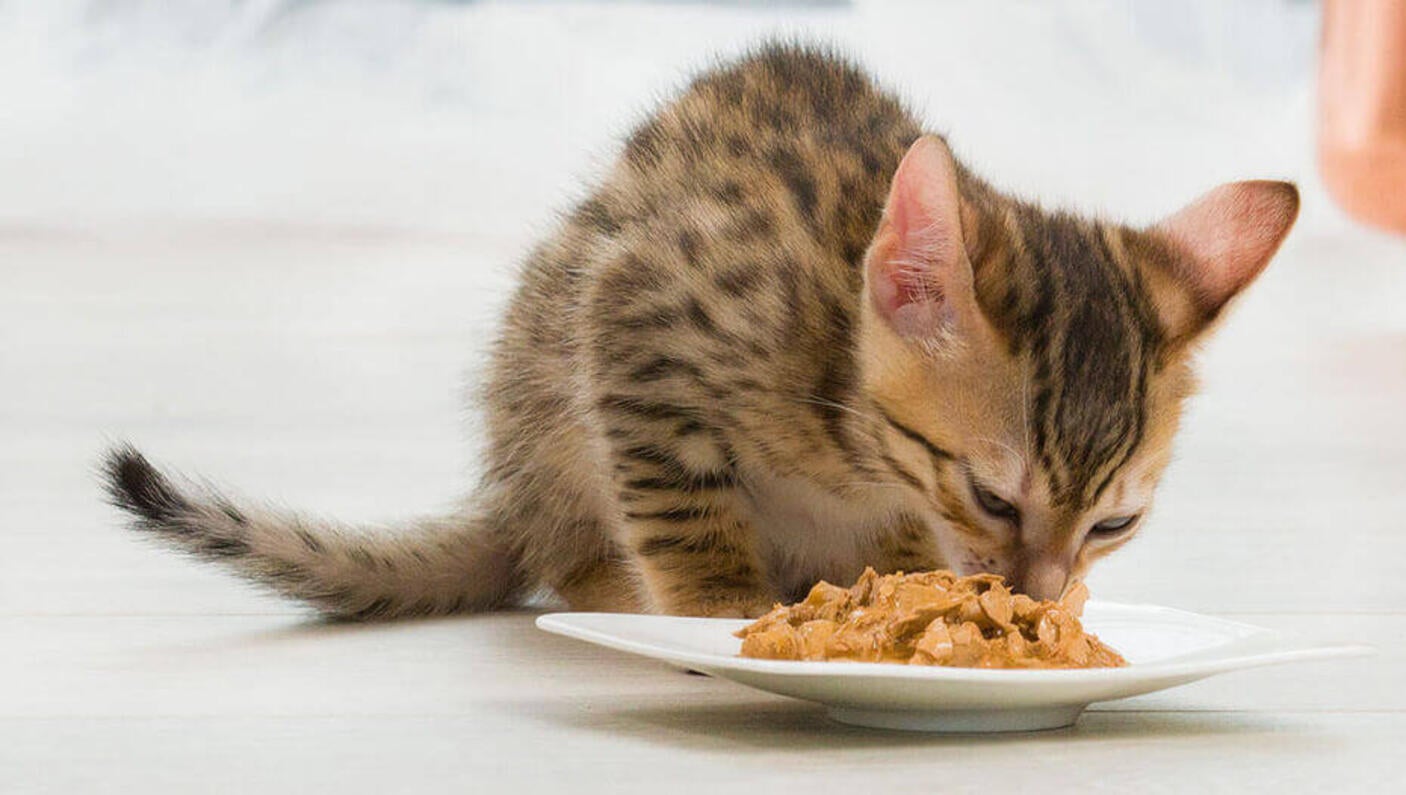
When it comes to choosing wet or dry cat food, the information can be overwhelming. Conflicting information and the sheer amount of choice on offer can all make choosing your cat’s diet seem difficult.
Go back to the basics with your cat’s diet in this article to learn all about the benefits and drawbacks of both wet or dry cat food, so you can make the right choice for your pet.
What do cats need in their diet?
Every cat requires a total of 41 essential micronutrients from their food each day – whether it be from wet or dry cat food. These micronutrients are ‘essential’ because they cannot be manufactured in the body, and they are necessary for normal, healthy function.
Cats are obligate carnivores who need to eat meat, and as such they can’t be fed a vegetarian diet without developing malnutrition problems. A proportion of their daily nutrients must come from animal sources, specifically the amino acids taurine and arginine, the fatty acid arachidonic acid, and pre-formed vitamin A.
What do cats like in their food?
Just like humans, when it comes to food, cats enjoy something tasty! Although they have far fewer taste buds than other animals—a mere 475 to dogs’ 1,700—they do have some interesting appetite quirks. A cat’s sensitivity to bitter tastes is 400 times greater than that of a dog’s, but they lack the taste buds to be able to enjoy sweet flavours. Texture and the shape are also important factors for cats when it comes to their kibble.
Cats’ sense of smell is superb, and is an essential part of appealing to their appetite. Food odours give pleasure, enhance enjoyment of food, and provide your cat with their own sense of nutritional information.

What are the benefits of wet cat food?
Wet cat food can benefit your cat in the following ways:
- It increases fluid intake, as it contains more moisture.
- It can be warmed, releasing aromas, which are useful in tempting the appetites of fussy or unwell felines.
- Cats with dental or mouth problems will find wet cat food easier to eat, as it has a softer texture.
- The larger volumes of wet food help cats to feel full more quickly, which is helpful if your cat is overweight.
- The single serve portions of wet cat food ensure your cat gets exactly the right amount of food at each mealtime.
What are the benefits of dry cat food?
Dry cat food can benefit your cat in the following ways:
- The crunchy texture of dry cat food helps to keep teeth clean and encourages chewing.
- Dry cat food is convenient to keep and store once opened, due to longer shelf life.
- The ability to provide smaller volumes is helpful for cats that prefer to graze throughout the day.
- It can be used to encourage activity and exercise, by strategically scattering bits around the house or using as treats.
- Dry cat food doesn’t spoil as quickly as wet food and may be cheaper per portion.
- Kibbles come in a huge variety of textures, shapes and sizes— you can trial many and find exactly the right kind for your cat.
How do I choose between wet or dry cat foods?
Unless your cat is on a particular diet that has been recommended by your vet, choosing between wet or dry cat food is entirely up to you and your cat. One version isn’t better than the other, they’re simply different options.
When deciding, consider your cat’s own preference, and note their level of enjoyment when trying different shapes and textures. It may be that your cat will make the decision for you!
When choosing between wet or dry cat food, you can also consider how and where you will store the food and how easy it is to buy in bulk, which may be influenced by ingredient quality, nutritional benefits and brand loyalty.
Ultimately, providing complete and balanced nutrition is the most important part of deciding your cat’s diet. For this, the most important factor is choosing high quality cat food with good ingredients to provide all of their nutritional needs. Wet or dry cat foods have differing benefits and drawbacks, so consider what format works best for you and allow your pet to have their say.








